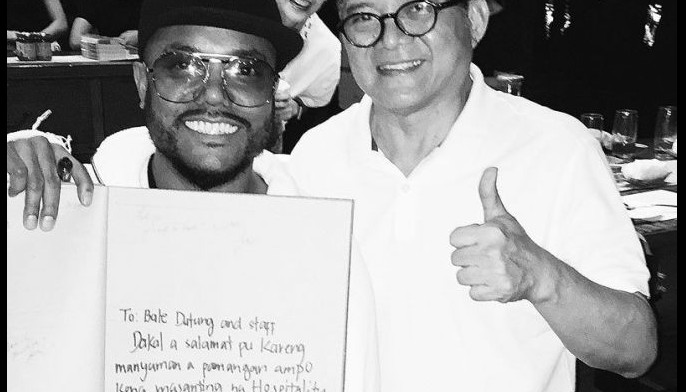ATRIEV offers better work opportunities for the blind
MANILA, Philippines - Going beyond what society dictates, a group of blind computer enthusiasts put up Adaptive Technology for Rehabilitation, Integration and Empowerment of the Visually Impaired (ATRIEV) back in 1994. This admittedly ambitious undertaking strived to come up with innovative ways to help visually impaired people find better work opportunities.
As the only school in the Philippines which specializes in computer access and information technology, ATRIEV makes use of adaptive technology so that blind and sight impaired individuals will have the chance to apply for mainstream employment, like call center positions.
Some may find it hard to believe that a visually impaired individual can successfully operate a computer by himself, but that in essence is what makes up ATRIEV’s success. At a time when blind people were limited to certain jobs, ATRIEV worked to fight against the clichés and proved that as long as you have faith in your own capabilities and there are people willing to lend a helping hand, there are clearly no limits to what a person can do.
Since its establishment, ATRIEV has directly and indirectly trained over 400 blind young adults and introduced more than a hundred blind grade school kids to information technology. In addition, the organization’s various training programs have benefited over a hundred Special Education teachers, rehabilitation workers, university instructors, and parents of blind children.
Behind ATRIEV’s success is its Board of Trustees, a handful of employees and some part-time volunteers who have all dedicated their time to ATRIEV’s mission of using and promoting assistive technology to facilitate the rehabilitation, integration, and empowerment of the visually-impaired sector in the country. The organization also strives to capitalize on the unique skills and harness the strengths of each employee, and to strive to become a sustainable organization.
Through the years, the organization has had various successes, including TESDA’s Kabalikat Award for Institutions in 2001; the Disabled-Friendly Website Recognition award from the Commission on Information and Communications Technology in 2005; the grand prize for the Samsung Hope Competition in 2006 and 2009; and the top award for the Philippines under the Bridging the Digital Divide category at the 2006 ADOC competition by the APEC Digital Opportunity Center led by Chinese Taipei.
But aside from industry recognitions, the organization’s biggest achievement is the hope that they continue to give to people who are seemingly at a disadvantage. Proof of that are the success stories of some of ATRIEV’s graduates, like Ma. Criselda Bisda, the first blind recruitment specialist in TeleTech; Julius Charles Serrano, the first totally blind screen reader scripting specialist and digital talking book software production specialist in the Philippines; Alona Bateg, the first totally blind female medical transcriptionist in the Philippines who has no medical background; Marx Vergel Melencio, the second totally blind Go Negosyo awardee for establishing and managing Grayscale Consultancy Services, a company specializing in web content writing; and Lourdes Borgonia, the first totally blind CICT awarded webmaster in the Philippines.
As job placement and job matching are part of the organization’s main thrusts, ATRIEV has made efforts to establish strong partnerships with government agencies, non-government organizations, and private business enterprises like its partnership with Gallop IT Solutions, a local transcription company, and most recently, with the Asia Pacific Economic Cooperation Digital Opportunity Center (ADOC) based in Taiwan.
In partnership with local funding agencies and the private sector, the ADOC 2.0 project brought about the establishment of a call center training facility for the visually impaired, the first in the Philippines. This training facility is equipped with adaptive hardware and software customized to the needs and abilities of the blind. It will use customized outbound call center software together with a refreshable Braille display as hardware, through which a totally blind person is able to provide customer assistance by listening to the client over the phone then reading the responses in Braille. With this technology, blind people can hopefully gain the same speed and efficiency as a sighted call center agent.
In order to better ensure the success of the ADOC 2.0 project, six totally blind, low vision, and sighted graduates of ATRIEV and representatives from partner organizations – the Resources for the Blind, National Council on Disability Affairs, Philippine National School for the Blind, and the Department of Education – are currently being trained in Taipei.
More than just an organization providing quality training in adaptive technology, ATRIEV gives visually impaired individuals a sense of hope and the confidence to strive for a brighter future.
ATRIEV Computer School for the Blind is located at 2/F 1680 E. Rodriguez Blvd., Cubao, Quezon City. Tel. 725-4191; e-mail [email protected].
- Latest


























